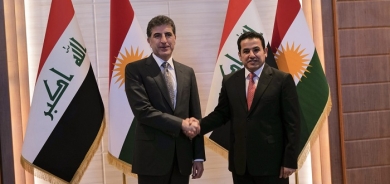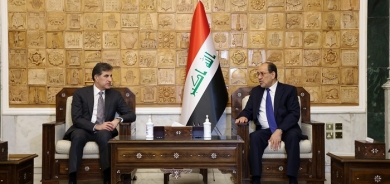Nicholas Dima: Helping the Kurds is tricky business
November 27, 2014
From Media

And America would be in an even more difficult situation if this conflict comes to fore in full force.
Recently, the Arizona Daily Star has printed several articles regarding the Kurds, but few readers are fully aware of their struggle and aspirations. The Kurdish plea is urgent now since ISIS launched a brutal campaign to conquer Syria and Iraq. The Kurds have put up a strong resistance against the jihadists, but they need international help to prevail.
The Kurds are allies of the United States and are fighting alongside the Western coalition against the newly self-declared Arab caliphate. For Washington, at stake in the near future is the integrity and stability of Iraq. If ISIS wins, Iraq would be greatly endangered. However, if the Kurds prevail, sooner or later they will demand a country of their own. Either way, the region is in more trouble now than before, and a return to the status quo ante is no longer likely.
Most of the fighting currently is taking place near the Turkish border. Turkey concentrated its troops across Kobani, but has been reluctant to step in and help the Kurds. Why? Who are the Kurds and what threats do they pose to the region?
The Kurds are an ancient people of Indo-European origin numbering some 30 million and they occupy a huge land area currently divided between Turkey, Iran, Iraq and Syria. Throughout their history, the Kurds served as mercenaries for other powers and failed to organize and maintain their own state. At the end of World War I, their area was divided between the newly formed countries because they did not have an educated elite and they lacked representation. Consequently, they became the largest minority in the Middle East, but the idea of independence survived.
There are about 14 million Kurds in Turkey, 8 million in Iran, 5 million in Iraq, and 1.6 million in Syria. Thus, there are more Kurds than either Syrians or Iraqis, and almost as many as Persian Iranians. They do aspire to have their own country, but an independent Kurdistan would carve out big chunks of land from the above mentioned countries, a move that is strongly rejected by all of them. This is why Turkey is reluctant to help the Kurds in Syria and why Washington has to walk a very fine line when it encourages the Kurds.
During recent decades the Kurds organized themselves and fought for their rights. They fought bitterly for decades against the Turkish government until recently when Ankara agreed to grant them increased rights.
When the U.S. fought the first Iraqi war, the Kurds became our natural allies. Then, with the help of U.S. and the United Nations, the Kurds established an autonomous region in northern Iraq. The very existence of this region is feared now by the governments in Damascus, Ankara, Tehran and Baghdad as the seed for a potentially independent Kurdistan.
This would be an unacceptable threat to their territorial integrity. The question remains: Can America help the Kurds without alienating the other countries and without risking an all-out war in the Middle East?
Nicholas Dima of Tucson has a Ph.D. in geography from Columbia University. He was an editor for Voice of America and a professor of European studies at the John F. Kennedy Special Warfare Center and School at Fort Bragg, North Carolina.
The Arizona Daily Star











